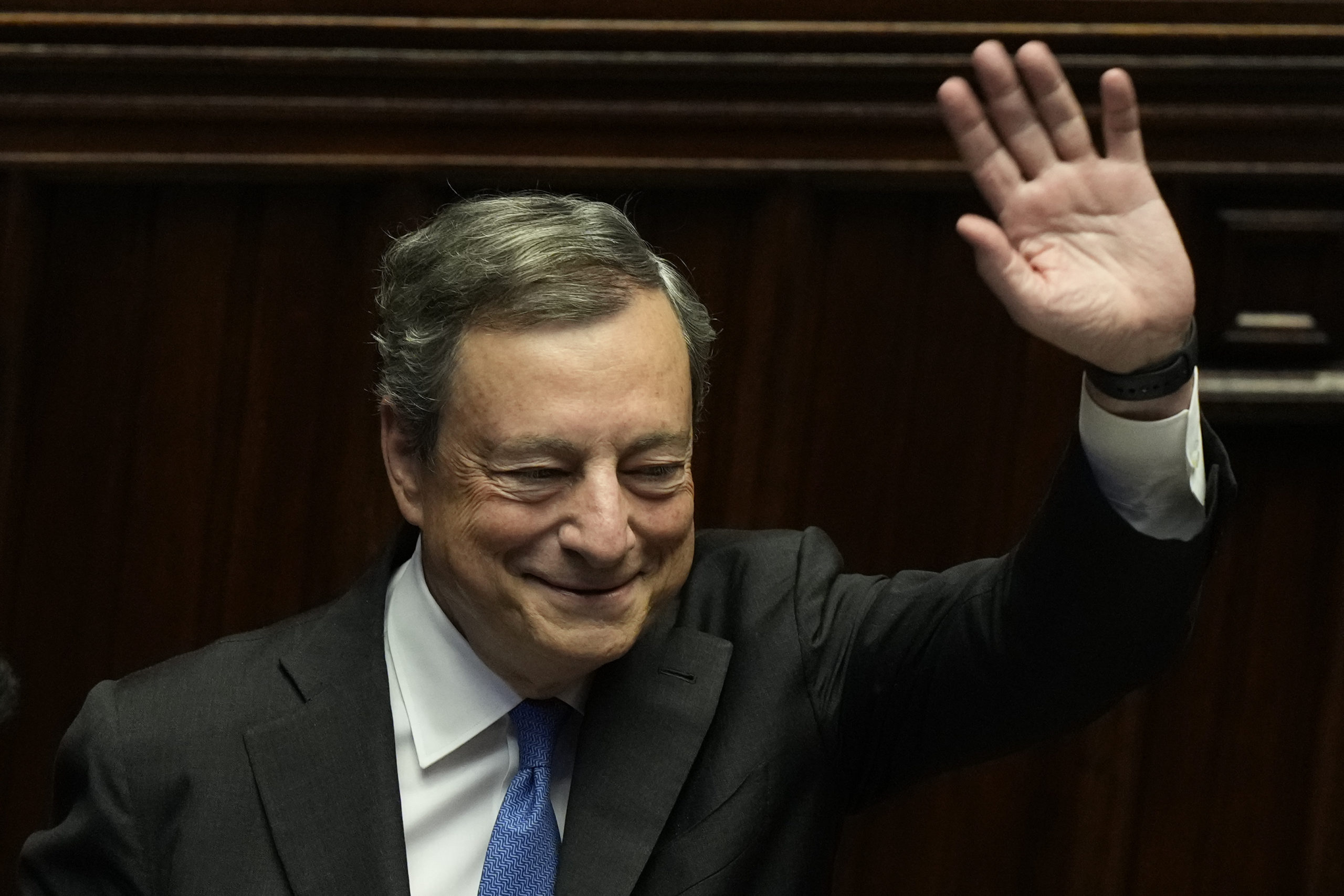 1
1 1
1
MILAN (AP) — Italy’s push to rapidly reduce its dependence on Russian natural gas has made the country less vulnerable to an interruption of supplies, Premier Mario Draghi said Wednesday, noting that gas storage is 80% full ahead of winter and on track to hit 90% by October.
Draghi told an annual summertime festival in the Adriatic seaside town of Rimini that Italy has reduced its reliance on Russian natural gas from 40% last year to half that by finding new sources in countries from Algeria to Azerbaijan. The fuel is used to heat and cool homes, generate electricity and run factories.
Italy could be completely independent of Russia by fall 2024 if it installs two new regasification plants, he added.
“Our goal of diversifying from Russian gas was fundamental to giving citizens and businesses greater certainly about the stability of supplies,” said Draghi, who resigned last month after key right-wing parties yanked support for his unity government.
He remains in office until a new government can be formed following Sept. 25 parliamentary elections.
Public resistance is growing to one of the planned offshore regasification plants near the industrial port city of Piombino, in Tuscany, and how plans proceed will be a key indicator of whether parties that win the Sept. 25 vote intend to continue Draghi’s path of reducing reliance on Russian energy.
Taking a swipe at right-wing parties that advocate sovereignty, Draghi said energy reliance on “a country that never stopped pursuing its imperial past is the exact opposite of sovereignty.”
His comments come as Russia’s war in Ukraine has driven natural gas prices to record highs, fueling inflation worldwide. Moscow has reduced gas flows to European countries as they try to bolster their reserves for the winter heating season, and fears are rising that deliveries could be cut off completely. That could lead to rationing by companies and push countries into recession.
Germany said Tuesday that its gas storage is 80% full but warned that Russia’s plan to halt flows through the Nord Stream 1 pipeline for three days next week “could temporarily dampen” the effort.
Patrick Graichen, Germany’s deputy economy and energy minister, said Wednesday that he believes gas markets are already pricing in the possibility that Nord Stream 1 won’t reopen. Russia’s state-controlled energy giant Gazprom said the scheduled downtime from Aug. 31 to Sept. 2 was for “routine maintenance.”
If gas doesn’t flow again through the pipeline, then current prices “are presumably the ones that market participants are already looking toward,” he said.
“And that probably reflects the shortage we are in,” Graichen added. “We’ll need to see how we respond to that appropriately.”
In Italy, Draghi again urged an European cap on natural gas prices, which has faced resistance among other EU member states. He told the audience in Rimini that fears Russia would cut off supplies in reprisal for any price cap were realized nonetheless this summer in periodic shutoffs to countries like Germany, which at the same time continued to pay “exorbitant prices.”
The prime minister also repeated his calls that the price of electricity generated by renewable energy no longer be tied to the higher price of natural gas.
“This relationship doesn’t make sense anymore,’’ he said.
___
AP reporter Frank Jordans in Berlin contributed.